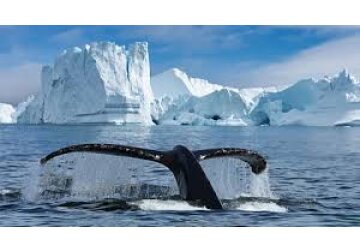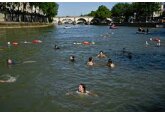
Seeking tourists: Four countries that are actively welcoming travellers
Following this summer's heated protests against overtourism, there's some good news. For every overcrowded tourist spot in Europe, there are plenty of places around the world that need more visitors.
St Mark's Square in Venice might host more tourists than pigeons, Barcelona has seen aggression against tourists reach a fever pitch and the clifftop paths can in Italy's Cinque Terre can feel like a supermarket queue. However, beyond these (and other) hotspots lie places that are equally rich in culture but without the crowds. Around the world, there are cities crying out for tourists and walking trails where you won't see a soul all day.
While we often hear about the destructive forces of tourism in major cultural destinations, for lesser-developed countries, the money tourism brings in helps to build much-needed infrastructure and community spaces. It offers jobs and training and gives locals a chance to proudly share their country's culture and traditions. Managed well, tourism can be an enriching economic stream, bringing people together around shared values and experiences. It doesn't have to replicate the issues we've seen this summer.
Greenland
With a new international airport opening in the capital, Nuuk, later this year, plus another international landing strip coming in the northern tourist capital of Ilulissat in 2025, Greenland is getting ready to welcome an increasing number of visitors. It marks a turning point in Greenlandic tourism: to date, its international runways have not been long enough to handle large flights, instead routing travellers through Kangerlussuaq, a former US military base, and shuttling them on a smaller plane to onward destinations.
The new infrastructure will mean that not only can more tourists fly directly into the capital, but, perhaps more importantly in a country where much is imported, more goods can come in and larger quantities of its export products, including seafood, can go out, hopefully leading to an economic boost for the whole country. Tourism is one way to pay for the airport development as well as provide jobs and stability for the future.
Greenland is focused on two main forms of tourism, the first being adventure tourism, which includes everything from rock climbing in Eastern Greenland to whale watching and camping on the Greenland Ice Sheet. The other is year-round tourism, which includes an emphasis on dark sky tourism – star gazing and northern lights-watching in particular.
Getting tourists to experience Greenland in summer has been far easier than doing so in winter; but to enable local people to have year-round jobs, tourists need to come in the off season too. Attracting people to places where the sun barely shines in the peak of winter – and where temperatures can dip to -50C – might seem like a challenge, but the country has made a virtue of it, opening up sky view cabins and igloos for awe-filled aurora-focused experiences.
Tanny Por, head of international relations at Visit Greenland, is keen to emphasise that it's not a question of quantity over quality, noting that the country's goal is that 80% of the population sees tourism as something that offers a positive contribution to society. "Airports cost a lot, so we do have to encourage a lot of tourists to come," she said, "but we will be doing this in a balanced way, so as not to overrun local people."
Por has just returned from a trip looking at travel opportunities in North Greenland, which will be accessible via direct international flights from 2025 when the new runway in Ilulissat opens.
"I went to a tiny town of 1,000 inhabitants, Qasigiannguit, and it was fantastic," she said. "There are musk ox in the backcountry, historical reenactments at the local museum and so many whales! I heard them before I saw them from my bedroom, and they were everywhere we went."
Morocco
Morocco is another nation keen to welcome more international visitors as it continues to develop its tourism infrastructure and build new hotels ahead of the 2030 World Cup, which it will co-host with Spain and Portugal. The North African country sees the tournament as a golden opportunity to boost tourism and is aiming to double tourist arrivals by 2030, to a whopping 26 million annual visitors.
It's estimated that the country will need 100,000 extra beds as a minimum to accommodate the visiting football fans and teams, and it's been busy making up the shortfall with many international hotel chains stepping in to help. A slew of new accommodations will be opening across the country as a result, from the Waldorf Astoria in Tangier to 25 new Radisson Hotels due to open before 2030, along with many re-opening after last year's devastating earthquake. Of these locations, Barbara recommends Fez, Morocco's cultural capital, which has the largest medina in the world and is not over touristed. She also recommends day tripping from Agadir, a popular package holiday destination, to Taroudant, nicknamed "little Marrakesh". "It's a short drive from Agadir and is an authentic, non-touristy city," she said. Also close to Agadir, the coast near the fishing village of Taghazout offers surf lessons on sandy beaches, while those planning a trip to Marrakesh can also include an excursion to the High Atlas mountains, a couple of hours drive away.
With the emphasis being thrown on further developing major cities in Morocco, the secret to an authentic holiday there may well be to use them as a base to discover lesser-visited spots nearby.
Serbia
Serbia doesn't have to look far to see a travel success story: in neighbouring Croatia, tourism has been a runaway hit. But while the city of Dubrovnik has had troubles with overtourism, Serbia is focusing firmly on sustainable development, working with the Global Sustainable Tourism Council to develop projects that don't encourage mass tourism, but look for a more sensitive, culture-oriented path forward.
This is partly because the country's tourism strategy has shifted. In the past, the focus was largely on city experiences, for example in Belgrade. However, with the realisation that tourism can help diversify rural livelihoods and improve local economies, mountain tourism, rural tourism and spa and wellness offerings have become an important part of the mix.
Georgia
Georgia, which borders Turkey, Russia and Azerbaijan by the Black Sea, has big plans to encourage everyone from disabled visitors and independent travellers to cruise tourists, with a vast port in Batumi, the country's second city. Its new 10-year development plan takes in everything from developing international signage so tourists can navigate the country solo, to improving accessibility, public transport and cruise ship ports as it opens up.
"Tourism is relatively new in Georgia," said Natalie Fordham, a Georgia specialist at Wild Frontiers, a tour operator specialising in offbeat and adventurous destinations. "It offers a relatively new career path and we see really fantastic guides as a result. They're super excited to be part of it, they speak great English and learn how to adapt to different people, and many of our travellers make friends with them and want to go back."
As a developing tourism nation, some of the things you might take for granted in Western Europe –such as an extensive paved road network – are not there yet. However, there's hope that revenue from tourism will help to drive these kinds of infrastructural initiatives.
"Tbilisi is my favourite capital city in the world," said Fordham, "with charming cobbled streets, a real aesthetic, old fortress walls, museums and more. Then you've got cave towns, Soviet architecture and history – Stalin was born here – and the northern and southern mountains, Unesco churches and monasteries, and a thriving wine and food scene. There's so much to see, you need a week-long trip at least."
Bbc.com







